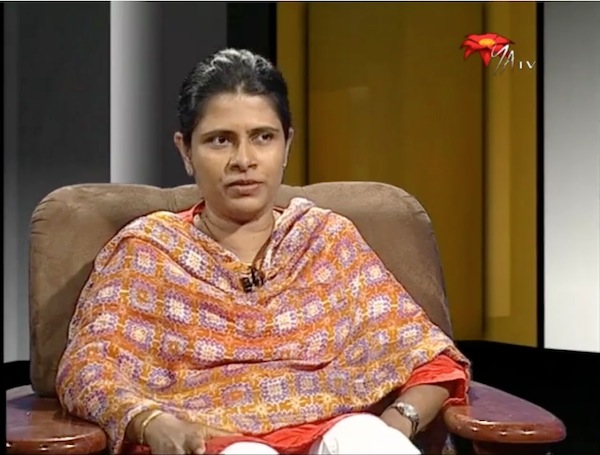First interviewed in 2010, Dr. Farzana Haniffa appears again on Groundviews to talk about the Citizens’ Commission on the Expulsion of Muslims from the Northern Province by the LTTE. As the Commission’s website notes, in October 1990, the Liberation Tigers of Tamil Eelam (LTTE) expelled the entire Muslim population of the Northern Province of Sri Lanka. Within a period of 48 hours the LTTE systematically chased out close to 75,000 Muslims residing in the districts of Kilinochchi Mulaitiwu, Jaffna, Mannar and parts of Vavuniya.
The Quest for Redemption: The Story of the Northern Muslims is the report by the Commission, release late 2011 and available for purchase online. As one of the Commissioner’s, Dr. Haniffa justifies why the Commission and its findings are an invaluable record of a chapter in Sri Lanka’s history that is often undervalued and glossed over. We talk about how the publication of the report has served to heighten interest over the complex dynamics regarding the Northern Muslims, and how the communities the Commission interacted with are also grateful for what in their minds is the first accurate historical record of what they underwent.
In a submission made to the Lessons Learnt and Reconciliation Commission (LLRC) by Dr. Farzana Haniffa in November 2010, the plight of the Northern Muslims was clearly flagged,
In summary then the Northern Muslims feel marginalised by the fact that the state has no policy on protracted displacement, no public acknoweldgement of the old IDPS and their needs, no cash grants for resettlement assistance, no commitment to assist with housing, no provision to address damage to property due to twenty years of neglect due to no fault of their own, no provision to address damage to social networks due to the conflict and the expulsion, no assistance with livelihoods, no plans for compensation. The northern Muslims are also distressed by the fact that they maybe absent from the government’s development plans for the North. They fear that they census and the local authorities bill may marginalise them by not taking into account the virtual limbo in which many of them currently live.
Dr. Haniffa notes that conditions have improved since 2010, and that the Government has unofficially given the assurance that protracted internal displacement would be addressed over 2012. She also goes into the complexities of return (“going back has not been easy” she categorically notes), the perception of the Northern Muslims by host communities and the tensions therein, the challenge of returning to a Peninsula that has still major challenges of infrastructure and the issue of co-habitation after twenty years of absence.
Going beyond the specific concerns regarding the Northern Muslims, Dr. Haniffa also critiques Muslim party politics in Sri Lanka post-independence, and how the real concerns over those evicted were hostage to the electoral desires and design of mainstream Muslim political parties. Towards the end, Dr. Haniffa notes that the process of documentation is still on-going, and that they are now working on getting photographs of the eviction from the families who have them, with a view to digitising them and placing them on the web.
Groundviews has also published three key articles dealing with the Commission.
- The Citizens’ Commission on the Expulsion of the Muslims from the Northern Province by the LTTE in October 1990 by Dr. Farzana Haniffa
- Some observations on the Final Report of the Commission on the Expulsion of Muslims from the Northern Province by the LTTE in October 1990 by Manouri Muttetuwegama
- A Commissioner’s Perspective: Citizens’ Commission on the Expulsion of Muslims from the Northern Province by the LTTE by Chulani Kodikara
